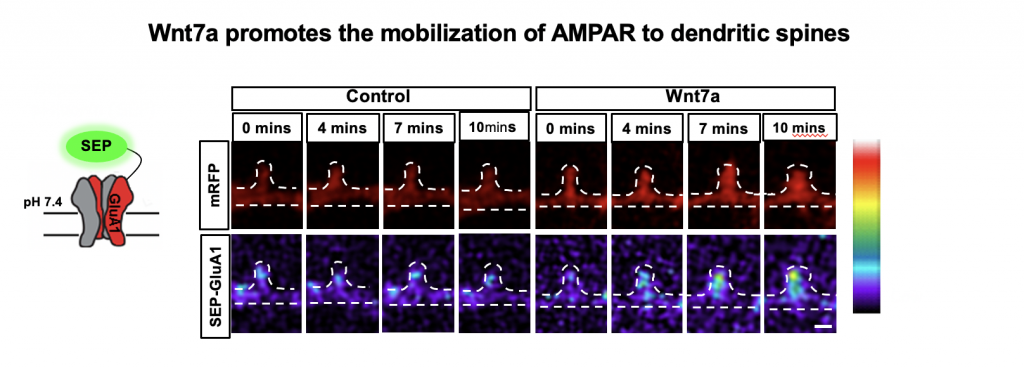We previously showed that Wnt7a signalling promotes spine growth and increases synaptic strength in the mouse hippocampus (Ciani et al., PNAS 2011). These findings led us to test the possible role of Wnt signalling in long-term-potentiation (LTP) induction. We found that LTP induction promotes the fast localisation of Wnt7a protein to dendritic spines. Importantly, acute blockade of endogenous Wnt proteins during LTP induction suppresses structural plasticity and synaptic potentiation. Using time-lapse recordings, we demonstrated that Wnt7a rapidly induces the recruitment of AMPARs to dendritic spines through Frizzled-7 (Fz7) receptor (McLeod et al., Cell Reports 2018).

Our studies uncovered a novel role for Wnt-Fz7 pathway in LTP by modulating known plasticity pathways that require CaMKII and PKA. In addition, we found that the LTP-mediated increase in multi-innervated spines requires endogenous Wnts (McLeod et al., Front. Synaptic Neurosci., 2020). Together our studies demonstrate a role for Wnt signalling in synaptic plasticity. We are currently investigating the molecular mechanisms by which the Wnt7a-Fz7 signalosome activates plasticity pathways using a multidisciplinary approach.
Video: dendritic spine EGFP-actin (green) and Dvl1HA, vGlut (red), PSD-95 (blue).